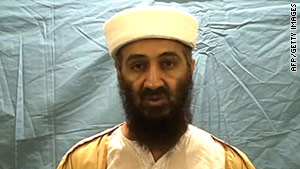May 17, 2011 11:19 a.m. EDT
"I have been traveling to really small and remote places in China," said the 43-year-old Islamabad native who has lived in the Chinese capital for a decade. "When people hear you're from Pakistan, they always mention that Pakistan is a lao pengyou -- an old friend."
As the two countries prepare to mark the 60th anniversary of diplomatic relations Saturday, Pakistani leaders certainly share such warm feelings toward China, especially in light of the strained Washington-Islamabad ties after the recent killing of Osama bin Laden by U.S. special forces inside Pakistan.
Chinese Premier Wen Jiabao last year called Sino-Pakistani ties "firm as a rock," and his Pakistani counterpart echoed the sentiment Monday.
"To test a friend whether true or not, it needs time and means under crisis," Pakistani Prime Minister Yousuf Raza Gilani told China's state-run media before leaving for a four-day official visit to China, during which he is scheduled to meet Wen and Chinese President Hu Jintao.
"We appreciate that in all difficult circumstances China stood with Pakistan -- therefore we call China a true friend and a time-tested and all-weather friend."
Although Gilani's trip was planned long before bin Laden's death, some observers see his comments as a jab to the United States and expect him to further strengthen ties with China to counter mounting U.S. criticisms. While many Americans suspect Pakistan of covertly harboring bin Laden, China has been quick to defend its ally.
"The Pakistani government is firm in resolve and strong in action when it comes to counterterrorism -- and has made important contributions to the international counterterrorism efforts," Foreign Ministry spokeswoman Jiang Yu said the day after the killing of the al Qaeda leader.
She called it "absurd" that Pakistan would reportedly allow China to examine the wreckage of a U.S. stealth helicopter that crashed in the raid on the bin Laden hideout.
But military relations have been close since Pakistan became one of the first countries to recognize the Communist government on the Chinese mainland. Sharing Islamabad's strategic concern over India, China has long been the main arms supplier to Pakistan.
China has helped Pakistan build its main nuclear power plant, despite Washington's unease over the safety of nuclear materials in a violence-prone country with Islamic militancy running strong. Some analysts believe Beijing also supported Islamabad's nuclear weapons program.
"Pakistan plays a major role in bridging China to the Muslim world," Teng Jimeng, a professor of American studies at Beijing Foreign Studies University, explained the special relationship between the two countries.
"As China continues to rise economically, it is searching for more natural resources," he added. "Pakistan could provide another route to ship oil and other resources into China."
China's fast-growing trade ties with Pakistan's archrival, India, however, show the limits of the Sino-Pakistani relationship. The Beijing leadership's increasing wariness over Muslim militants -- many with strong links to Pakistan -- in China's restive far western Xinjiang region could also put the all-weather friendship to the test.
Back in the popular Pakistani restaurant in Beijing, owner Jaleel sees diminishing U.S. influence in his country almost as a foregone conclusion.
"Americans invested a lot of money in Pakistan, but it was not invested in the right direction or in the right areas," said the businessman who started his career with IBM in Pakistan and later opened Beijing's first Subway sandwich shop. "The money mostly was invested in the war -- and the common people don't see the benefits."
Jaleel feels happy to see the rise of a longtime Pakistani ally who has stood by his nation through thick and thin.
"Wars, floods, earthquakes -- whatever the situation China has always been very friendly to Pakistan and has always supported Pakistan," he said. "I feel the stronger China is, the more helpful it will be for Pakistan."

